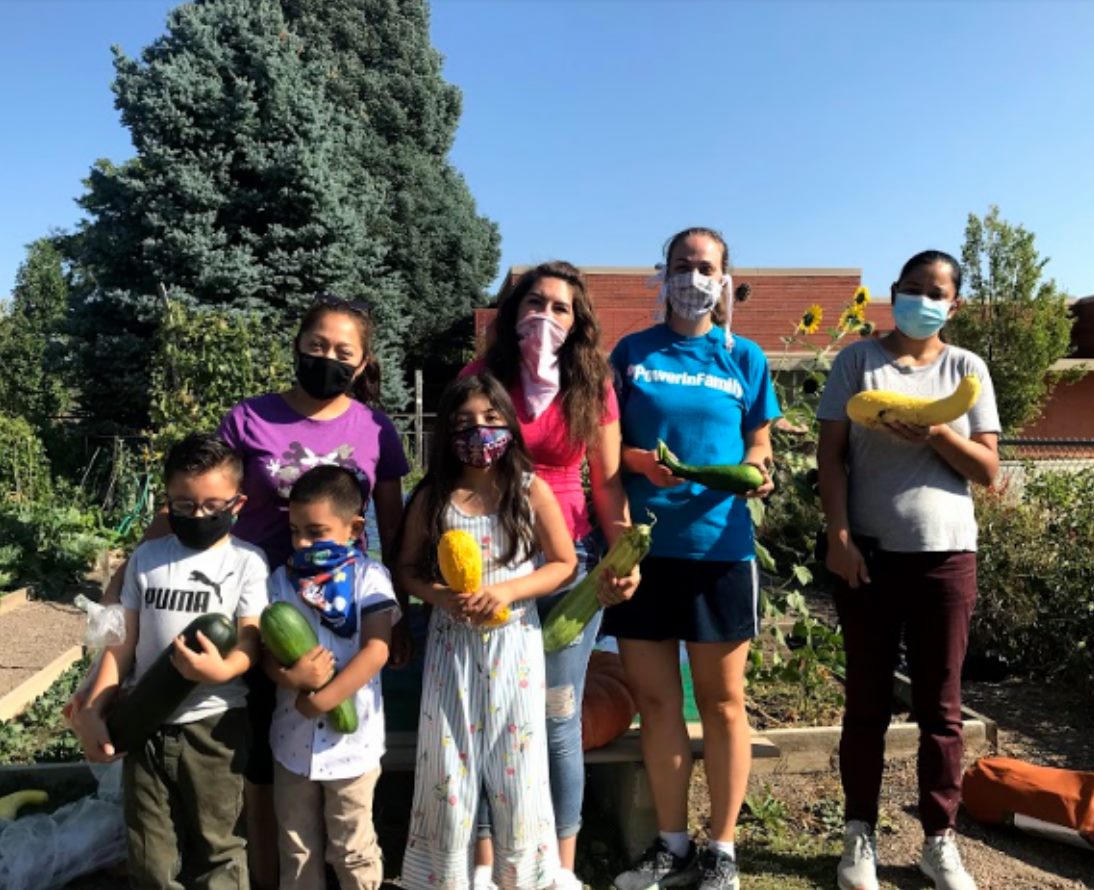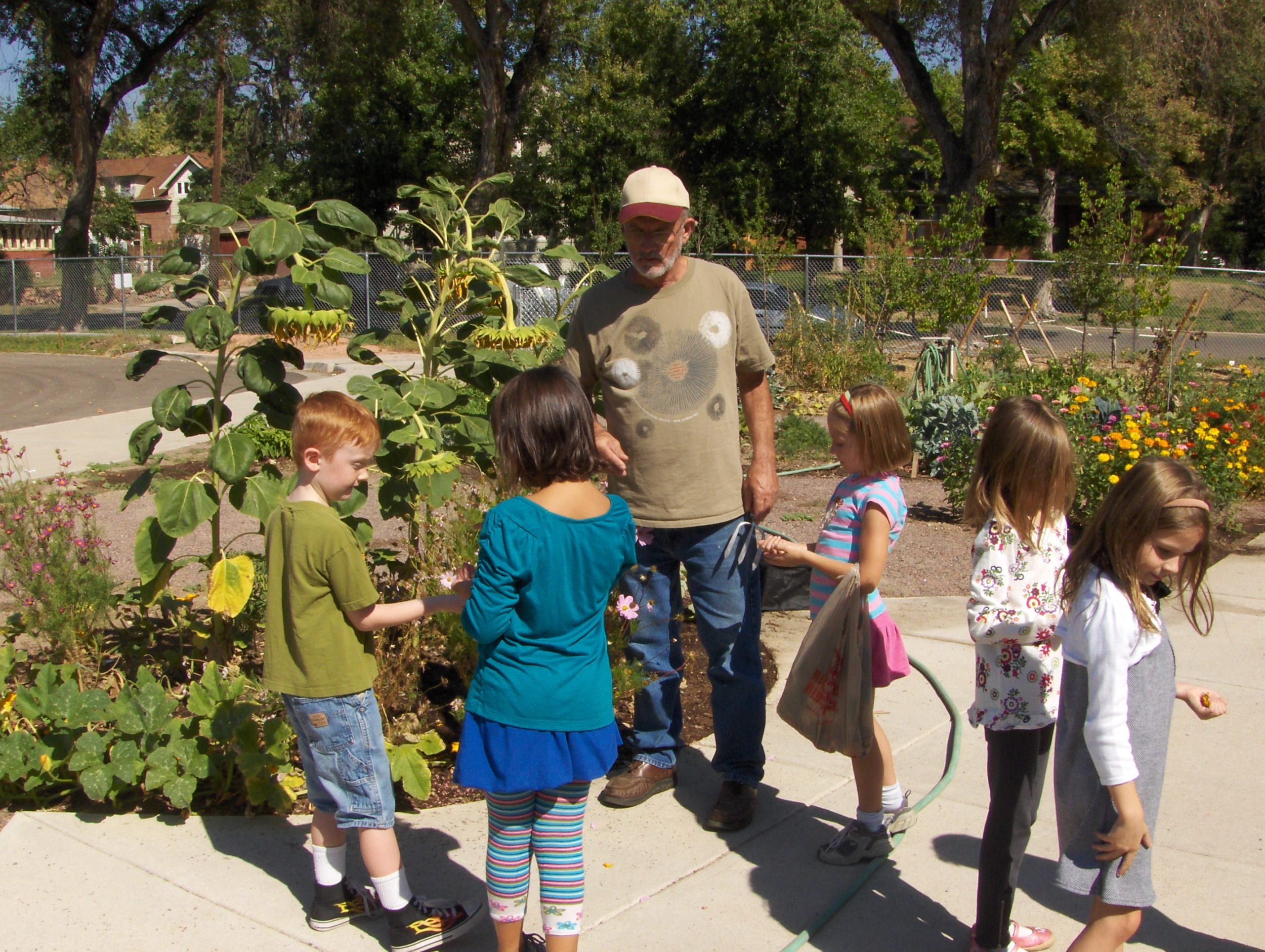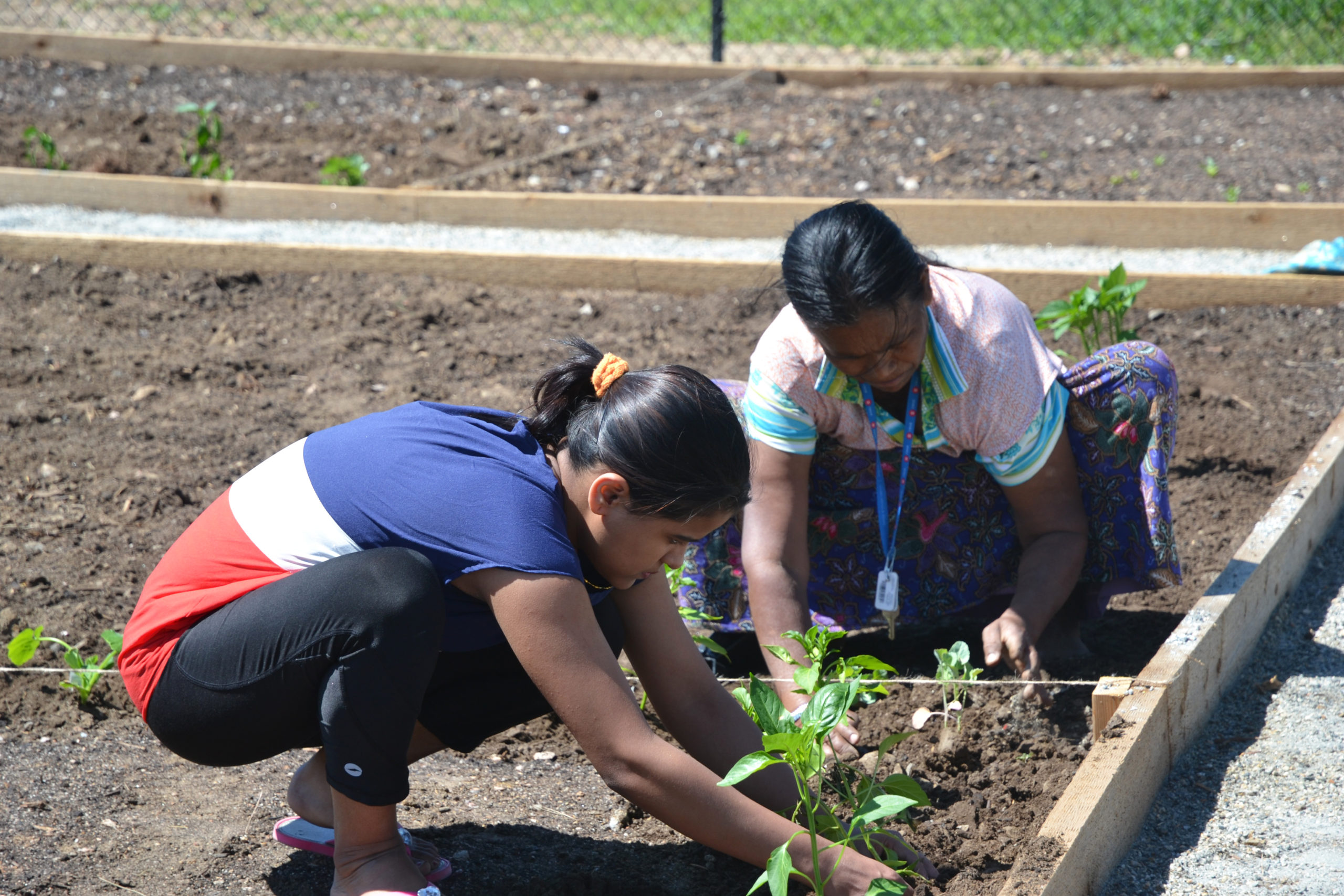by Brenda Stuart
Your thumb doesn’t need to be any shade of green to get involved in a community garden. It’s a great way for beginners to learn about horticulture from those who have been gardening for years.
Denver Urban Gardens brings Denver folks together (for more than 35 years now!) to grow local, fresh, organic food. Not only does this benefit our tables, but people in tight-knit communities tend to be healthier.

Physical Health
Gardening may not look physically challenging, but even a moderate workout has benefits. There’s a lot of bending and stretching, reaching, pulling, and squatting involved, and you can burn up to 300 calories in 30-45 minutes of working the soil.
Treat gardening as a workout for the best physical benefits. It’s useful for older and younger adults and kids, all of whom are welcome in community gardens. Of DUG’s 180 gardens, only a few target specific communities. The majority are open to the public.
You can expand your “gardening workouts” beyond your own family and invite others in the garden to join in. Gardeners get about 30% more moderate exercise each week than non-gardeners. You may soon have others in the community improving their health, and looking forward to these gardening sessions.
What you eat also impacts your physical health. Community gardens result in neighborhoods with healthier diets. More than 50% of gardeners meet federal guidelines for fruit and vegetable intake compared to 25% of non-gardeners.

Mental Health
Stress is a killer. It causes all parts of your body to decline, from eyes and gums to your heart. Gardening fights off stress by decreasing cortisol in the body (a stress hormone) and restoring your good mood.
There are several advantages to practicing green-care therapy with the community:
- Socializing – Working with companions toward a common goal increases your sense of well-being. It also sharpens your memory and cognitive skills, and it may help you live longer.
- Sunlight – Exposure to the sun increases the brain’s release of serotonin, a hormone thought to boost mood and help you feel calm and focused.
- Being Outdoors – Calming nature sounds (birds, insects) and even outdoor silence help distract your mind from negative thoughts. The visuals of nature have a similar effect.
- Exposure to Plants – Greenery cleans the air. Plant leaves remove toxins, dust, and microorganisms and freshen the air you breathe.
Spending time outdoors surrounded by natural elements helps you forget the pressures you face in the rest of your life, like deadlines at work or family dilemmas. Community involvement in a garden offers these queting benefits to everyone in the neighborhood.

Overall Neighborhood Impact
How well do you know your neighbors? Community gardening creates a positive atmosphere in which people get to know one another and enjoy their living space.
Community gardeners nurture relationships with the folks next door, are more involved in civic activities, eat better, and stay longer in their neighborhoods. People who garden together say their communities are cleaner, safer, and more beautiful; all qualities that promote healthier living.
If you’re ready to try your hand, or thumb, at a worthy project, take a look at the gardens in Globeville, Ruby Hill, or any of the other best community gardens around Denver. Most gardens not only feed the neighborhood, they donate produce to food banks and other food charities. You aren’t only helping yourself and your community, you’re providing help to others throughout the city. If you’re ready to dig in, contact us here at Denver Urban Gardens.
Brenda Stuart is a journalist and avid gardener in Denver. She takes a lot of pride in planting tomatoes, lettuce, and broccoli, which she’ll sometimes trade with her neighbors for carrots and peppers.




